- Home
- Neil Gaiman
Norse Mythology Page 14
Norse Mythology Read online
Page 14
Then the cauldron began to move, with Thor inside. It headed toward the door, while all around the hall many-headed giants stared, openmouthed.
Hymir no longer wept. Tyr glanced up at him. “Thank you for the cauldron,” he said. And then, keeping the moving cauldron between himself and Hymir, Tyr edged out of the room.
Thor and Tyr left the castle together, untethered Thor’s goats, and climbed into Thor’s chariot. Thor still carried the cauldron on his back. The goats ran as best they could, but while Snarler ran well and ran fast, even with the weight of the giant’s cauldron to pull, Grinder limped and staggered. Its leg had once been broken for marrow, and Thor had set it, but the goat had never been as strong again.
Grinder bleated in pain as it ran.
“Can’t we go any faster?” asked Tyr.
“We can try,” said Thor, and he whipped the goats so they ran even faster.
Tyr looked behind. “They are coming,” he said. “The giants are coming.”
They were indeed coming, with Hymir at their rear, urging them on: all the giants of that part of the world, a many-headed monstrous bunch, the giants of the waste, misshapen and deadly. An army of giants, all intent on getting their cauldron back.
“Go faster!” said Tyr.
It was then that the goat called Grinder stumbled and fell, throwing them out of the chariot.
Thor staggered to his feet. Then he threw the cauldron to the ground and began to laugh.
“What are you laughing about?” asked Tyr. “There are hundreds of them.”
Thor hefted Mjollnir, his hammer. “I didn’t catch and kill the serpent,” he said. “Not this time. But a hundred giants almost make up for it.”
Methodically, enthusiastically, one after the next, Thor killed the giants of the waste, until the earth ran black and red with their blood. Tyr fought one-handed, but he fought bravely, and he slew his share of giants that day.
When they were done and all the giants were dead, Thor crouched beside Grinder, his injured goat, and helped it back to its feet. The goat limped as it walked, and Thor cursed Loki, whose fault it was that his goat was lame. Hymir was not among the slain, and Tyr was relieved, for he did not want to bring his mother any additional distress.
Thor carried the cauldron to Asgard, to the meeting of the gods.
They took the cauldron to Aegir. “Here,” said Thor. “A brewing cauldron big enough for all of us.”
The sea giant sighed. “It is indeed what I asked for,” he said. “Very well. There will be an autumn feast for all the gods in my hall.”
He was as good as his word, and since then, every year once the harvest is in, the gods drink the finest ale there ever was or will be, in the autumn, in the sea giant’s hall.
THE DEATH OF BALDER
I
Nothing there is that does not love the sun. It gives us warmth and life; it melts the bitter snow and ice of winter; it makes plants grow and flowers bloom. It gives us the long summer evenings, when the darkness never comes. It saves us from the bitter days of midwinter, when the darkness is broken for only a handful of hours and the sun is cold and distant, like the pale eye of a corpse.
Balder’s face shone like the sun: he was so beautiful that he illuminated any place he entered. Balder was Odin’s second son, and he was loved by his father, and by all things. He was the wisest, the mildest, the most eloquent of all the Aesir. He would pronounce judgment, and all would be impressed by his wisdom and his fairness. His home, the hall called Breidablik, was a place of joy and music and knowledge.
Balder’s wife was Nanna, and he loved her and only her. Their son, Forsete, was growing to become as wise a judge as his father. There was nothing wrong with Bal-der’s life or his world, save only one thing.
Balder had bad dreams.
He dreamed of worlds ending, and of the sun and the moon being eaten by a wolf. He dreamed of pain and death without end. He dreamed of darkness, of being trapped. Brothers slew brothers in his dreams, and nobody could trust anyone else. In his dreams, a new age would come upon the world, an age of storm and of murder. Balder would wake from these dreams in tears, troubled beyond all telling.
Balder went to the gods and he told them of his nightmares. None of them knew what to make of the dreams, and they too were troubled, all but one of them.
When Loki heard Balder talk of his bad dreams, Loki smiled.
Odin set out to find the cause of his son’s dreams. He put on his gray cloak and his broad-brimmed hat, and when folk asked his name, he said he was Wanderer, son of Warrior. Nobody knew the answers to his questions, but they told him of a seer, a wise woman, who understood all dreams. She could have helped him, they said, but she was long dead.
At the end of the world was the wise woman’s grave. Beyond it, to the east, was the realm of the dead who had not died in battle, ruled over by Hel, Loki’s daughter by the giantess Angrboda.
Odin traveled east, and he stopped when he reached the grave.
The all-father was the wisest of the Aesir, and he had given his eye for more wisdom.
He stood by the grave at the end of the world, and in that place he invoked the darkest of runes and called on old powers, long forgotten. He burned things, and he said things, and he charmed and he demanded. The storm wind whipped at his face, and then the wind died and a woman stood before him on the other side of the fire, her face in the shadows.
“It was a hard journey, coming back from the land of the dead,” she told him. “I’ve been buried here for such a long time. Rain and snow have fallen on me. I do not know you, man-who-raised-me. What do they call you?”
“They call me Wanderer,” said Odin. “Warrior was my father. Tell me the news from Hel.”
The dead wise woman stared at him. “Balder is coming to us,” she told him. “We are brewing mead for him. There will be despair in the world above, but in the world of the dead there will be only rejoicing.”
Odin asked her who would kill Balder, and her answer shocked him. He asked who would avenge Balder’s death, and her answer puzzled him. He asked who would mourn Balder, and she stared at him across her own grave, as if she were seeing him for the first time.
“You are not Wanderer,” she said. Her dead eyes flickered, and there was expression on her face. “You are Odin, who was sacrificed by himself to himself so long ago.”
“And you are no wise woman. You are she who was in life Angrboda, Loki’s lover, mother to Hel, to Jormungundr, the Midgard serpent, and to Fenris Wolf,” said Odin.
The dead giantess smiled. “Ride home, little Odin,” she told him. “Run away, run back to your hall. No one will come to see me now until my husband, Loki, escapes from his bonds and returns to me, and Ragnarok, the doom of the gods, tearing all asunder, approaches.”
And then there was nothing in that place but shadows.
Odin left with his heart heavy, and with much to think about. Even the gods cannot change destiny, and if he was to save Balder he would have to do it with cunning, and he would need help. There was one other thing that the dead giantess had said that disturbed him.
Why did she talk about Loki escaping his bonds? wondered Odin. Loki is not bound. And then he thought, Not yet.
II
Odin kept his own counsel, but he told Frigg, his wife, mother of the gods, that Balder’s dreams were true dreams, and that there were those who meant their favorite son harm.
Frigg thought. Practical as ever, she said, “I do not believe it. I shall not believe it. There is nothing that despises the sun and the warmth and the life it brings the earth, and by the same token there is nothing that hates my son Balder the beautiful.” And she set out to ensure that this was so.
She walked the earth and exacted an oath from each thing that she encountered never to harm Balder the beautiful. She spoke to fire, and it promised it would not burn him;
water gave its oath never to drown him; iron would not cut him, nor would any of the other metals. Stones promised never to bruise his skin. Frigg spoke to trees, to beasts, and to birds and to all things that creep and fly and crawl, and each creature promised that its kind would never hurt Balder. The trees agreed, each after its kind, oak and ash, pine and beech, birch and fir, that their wood could never be used to hurt Balder. She conjured diseases and spoke to them, and each of the diseases and infirmities that can hurt or wound a person agreed that it too would never touch Balder.
Nothing was too insignificant for Frigg to ask, save only the mistletoe, a creeping plant that lives on other trees. It seemed too small, too young, too insignificant, and she passed it by.
And when everything had sworn its oath not to harm her son, Frigg returned to Asgard. “Balder is safe,” she told the Aesir. “Nothing will hurt him.”
All of them doubted her, even Balder. Frigg picked up a stone and whipped it toward her son. The stone skipped around him.
Balder laughed with delight, and it was as if the sun had come out. The gods smiled. And then one by one they threw their weapons at Balder, and each of them was astonished and amazed. Swords would not touch him, spears would not pierce his flesh.
All the gods were relieved and happy. There were only two faces in Asgard that were not radiant with joy.
Loki was not smiling or laughing. He watched the gods hack at Balder with axes and with swords, or drop enormous rocks on Balder, or try to strike Balder with huge knotted wooden clubs, and laugh as the clubs and swords and rocks and axes avoided Balder or touched him like gentle feathers, and Loki brooded, and slipped away into the shadows.
The other was Balder’s brother Hod, who was blind.
“What is happening?” asked blind Hod. “Will somebody please tell me what is happening?” But nobody talked to Hod. He listened to the sound of merrymaking and joy, and he wished he could be a part of it.
“You must be very proud of your son,” said a kindly woman to Frigg. Frigg did not recognize the woman, but the woman beamed when she looked at Balder, and Frigg was indeed proud of her son. Everybody loved him, after all. “But won’t they hurt him, the poor darling? Throwing things at him like that? If I were his mother, I would be afraid for my son.”
“They will not hurt him,” said Frigg. “No weapon can hurt Balder. No disease. No rock. No tree. I have taken an oath from all the things there are that can harm.”
“That’s good,” said the kindly woman. “I’m pleased. But are you sure you didn’t miss any of them?”
“Not a one,” said Frigg. “All the trees. The only one I did not bother with was the mistletoe—it’s a creeper that grows on the oak trees west of Valhalla. But it’s too young and too small ever to do any harm. You could not make a club from mistletoe.”
“My, my,” said the kindly woman. “Mistletoe, eh? Well, truth to tell, I wouldn’t have bothered with that either. Much too weedy.”
The kindly woman had begun to remind Frigg of someone, but before the goddess could think who it was, Tyr held up an enormous rock with his good left hand, held it high above his head, and crashed it down on Balder’s chest. It disintegrated into dust before ever it touched the shining god.
When Frigg turned back to talk to the kindly woman, she was already gone, and Frigg thought no more about it. Not then.
Loki, in his own form, traveled to the west of Valhalla. He stopped by a huge oak tree. Here and there pendulous clumps of green mistletoe leaves and pale white berries hung from the oak, seeming even more insignificant when seen next to the grandeur of the oak. They grew directly out of the bark of the oak tree. Loki examined the berries, the stems, and the leaves. He thought about poisoning Balder with mistletoe berries, but that seemed too simple and straightforward.
If he was going to do harm to Balder, he was going to hurt as many people as possible.
III
Blind Hod stood to one side, listening to the merriment and the shouts of joy and astonishment coming from the green, and he sighed. Hod was strong, even if he was sightless, one of the strongest of the gods, and usually Balder was good about making certain that he was included. This time, even Balder had forgotten him.
“You look sad,” said a familiar voice. It was Loki’s voice.
“It’s hard, Loki. Everyone is having such a good time. I hear them laughing. And Balder, my beloved brother, he sounds so happy. I just wish I could be part of it.”
“That is the easiest thing in the world to remedy,” said Loki. Hod could not see the expression on his face, but Loki sounded so helpful, so friendly. And all the gods knew that Loki was clever. “Hold out your hand.”
Hod did so. Loki put something into it, closed Hod’s fingers around it.
“It is a little wooden dart I made. I will bring you close to Balder, and I will point you at him, and you shall throw it at him as hard as you can. Throw it with all your might. And then all the gods will laugh and Balder will know that even his blind brother has taken part in his day of triumph.”
Loki walked Hod through the people, toward the hubbub. “Here,” said Loki. “This is a good place to stand. Now, when I tell you, throw the dart.”
“It is only a little dart,” said Hod wistfully. “I wish I were throwing a spear or a rock.”
“A little dart will do,” said Loki. “The tip of it is sharp enough. Now, throw it there, like I told you.”
A mighty cheer and a laugh: a club made of knotted thornbush wood studded with sharp iron nails was swung by Thor into Balder’s face. The club skipped up and over his head at the last moment, and Thor looked as if he were dancing. It was very comical.
“Now!” whispered Loki. “Now, while they are all laughing.”
Hod threw the dart of mistletoe, just as he had been told. He expected to hear cheers and laughter. Nobody laughed, and nobody cheered. There was silence. He heard gasps, and a low muttering.
“Why is nobody cheering me?” asked blind Hod. “I threw a dart. It was neither big nor heavy, but you must have seen it. Balder, my brother, why are you not laughing?”
He heard wailing then, high and keen and awful, and he knew the voice. It was his mother who wailed.
“Balder, my son. Oh Balder, oh my son,” she wailed.
It was then that Hod knew his dart had hit home.
“How terrible. How sad. You have killed your brother,” said Loki. But he did not sound sad. He did not sound sad at all.
IV
Balder lay dead, pierced by the mistletoe dart. The gods gathered, weeping and tearing their garments. Odin said nothing, save only, “No vengeance will be taken on Hod. Not yet. Not right now. Not at this time. We are in a place of holy peace.”
Frigg said, “Who among you wants to win my good graces by going to Hel? Perhaps she will let Balder return to this world. Even Hel could not be so cruel as to keep him . . .” She thought for a moment. Hel was, after all, Loki’s daughter. “And we will offer her a ransom to give us Balder back. Is there one of you who is willing to travel to Hel’s kingdom? You might not return.”
The gods looked at each other. And then one of them raised his hand. This was Hermod, called the Nimble, Odin’s attendant, the fastest and the most daring of the young gods.
“I will go to Hel,” he said. “I will bring back Balder the beautiful.”
They brought forth Sleipnir, Odin’s stallion, the eight-legged horse. Hermod mounted it and prepared to ride down, ever down, to greet Hel in her high hall, where only the dead go.
As Hermod rode into darkness, the gods prepared Balder’s funeral. They took his corpse and they placed it on Hringhorn, Balder’s ship. They wanted to launch the ship and burn it, but they could not move it from the shore. They all pushed and heaved, even Thor, but the ship sat on the shore, unmoving. Only Balder had been able to launch his ship, and now he was gone.
The gods sent for Hyrrokkin the giantess, who came to them riding on an enormous wolf, with serpents for reins. She went to the prow of Balder’s ship and she pushed as hard as she could: she launched the ship, but her push was so violent that the rollers the ship was on burst into flame, and the earth shook, and the waves were terrifying.
“I ought to kill her,” said Thor, still stinging from his own failure to launch the ship, and he grasped the handle of Mjollnir, his hammer. “She shows disrespect.”
“You will do nothing of the kind,” said the other gods.
“I’m not happy about any of this,” said Thor. “I’m going to kill somebody soon, just to relieve the tension. You’ll see.”
Balder’s body was brought down the shingle, borne by four gods; eight legs took him past the crowd assembled there. Odin was foremost in the crowd of mourners, his ravens on each shoulder, and behind him the Valkyries and the Aesir. There were frost giants and mountain giants at Balder’s funeral; there were even dwarfs, the cunning craftsmen from beneath the ground, for all things that there were mourned the death of Balder.
Balder’s wife, Nanna, saw her husband’s body carried past. She wailed, and her heart gave out in her breast, and she fell dead onto the shore. They carried her to the funeral pyre, and they placed her body beside Balder’s. Out of respect, Odin placed his arm-ring Draupnir onto the pyre; this was the miraculous ring made for him by the dwarfs Brokk and Eitri, which every nine days would drip eight other rings of equal purity and beauty. Then Odin whispered a secret into Balder’s dead ear, and what Odin whispered none but he and Balder will ever know.
Balder’s horse, fully caparisoned, was ridden to the pyre and sacrificed there, in order that it would be able to bear its master in the world to come.
They lit the pyre. It burned, consuming the body of Balder and the body of Nanna, and his horse, and his possessions.

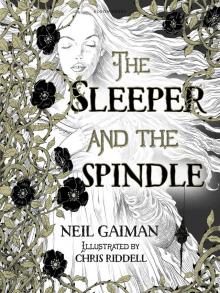 The Sleeper and the Spindle
The Sleeper and the Spindle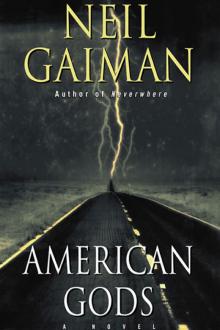 American Gods
American Gods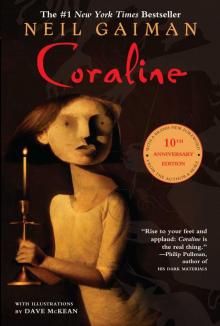 Coraline
Coraline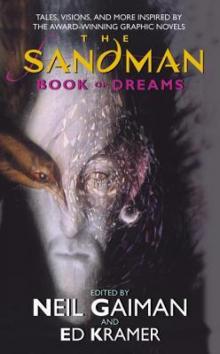 The Sandman: Book of Dreams
The Sandman: Book of Dreams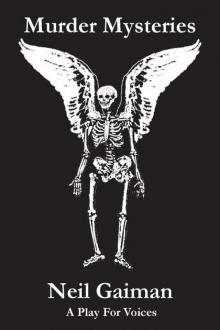 Murder Mysteries
Murder Mysteries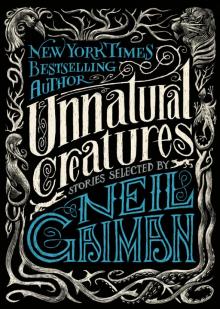 Unnatural Creatures
Unnatural Creatures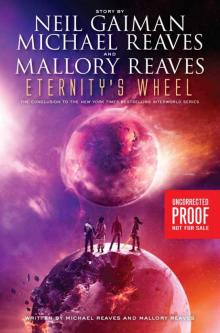 Eternity's Wheel
Eternity's Wheel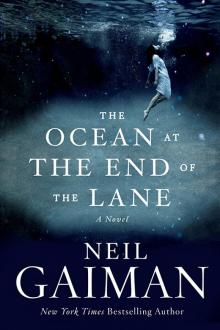 The Ocean at the End of the Lane
The Ocean at the End of the Lane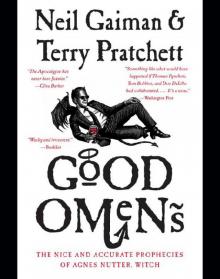 Good Omens
Good Omens Stardust
Stardust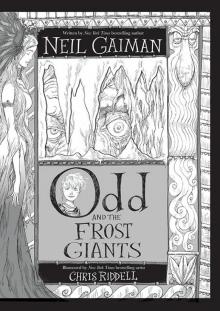 Odd and the Frost Giants
Odd and the Frost Giants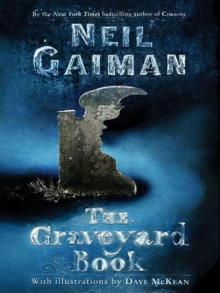 The Graveyard Book
The Graveyard Book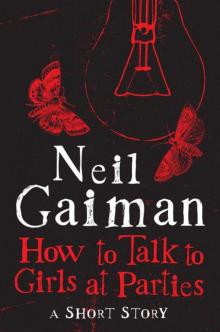 How to Talk to Girls at Parties
How to Talk to Girls at Parties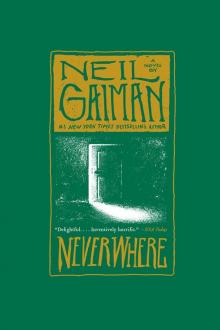 Neverwhere
Neverwhere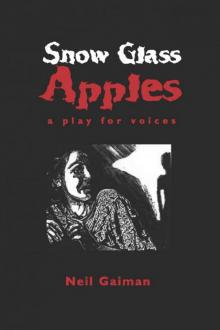 Snow, Glass, Apples
Snow, Glass, Apples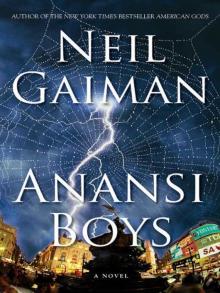 Anansi Boys
Anansi Boys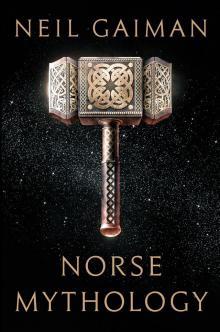 Norse Mythology
Norse Mythology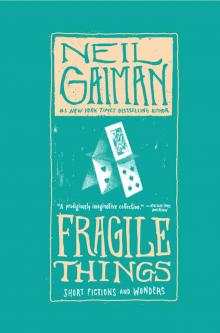 Fragile Things: Short Fictions and Wonders
Fragile Things: Short Fictions and Wonders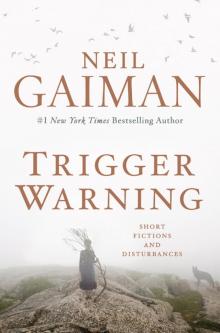 Trigger Warning: Short Fictions and Disturbances
Trigger Warning: Short Fictions and Disturbances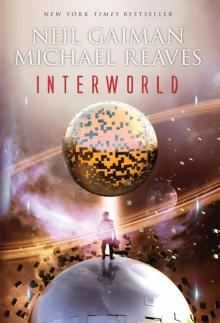 InterWorld
InterWorld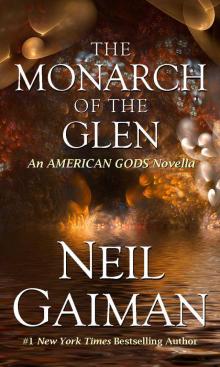 The Monarch of the Glen
The Monarch of the Glen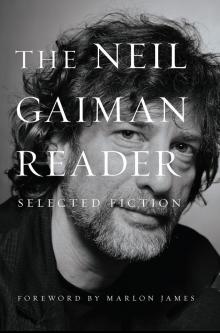 The Neil Gaiman Reader
The Neil Gaiman Reader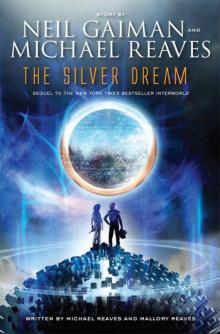 The Silver Dream
The Silver Dream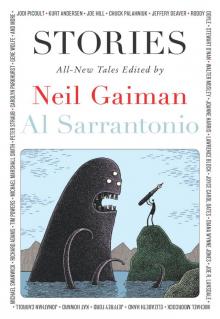 Stories
Stories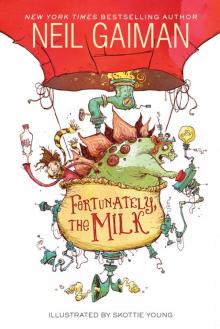 Fortunately, the Milk
Fortunately, the Milk Art Matters
Art Matters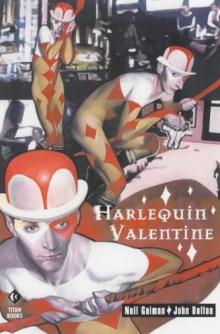 Harlequin Valentine
Harlequin Valentine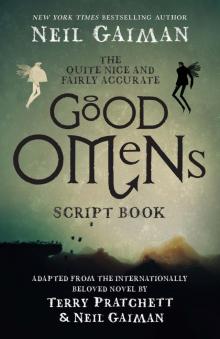 The Quite Nice and Fairly Accurate Good Omens Script Book
The Quite Nice and Fairly Accurate Good Omens Script Book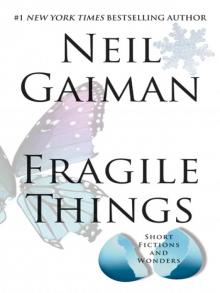 Fragile Things
Fragile Things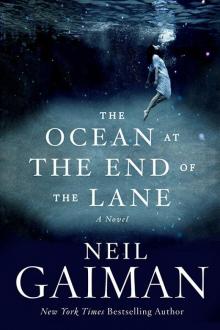 The Ocean at the End of the Lane: A Novel
The Ocean at the End of the Lane: A Novel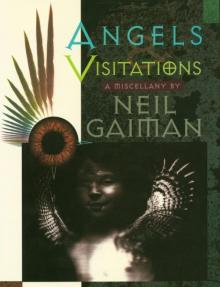 Angels and Visitations
Angels and Visitations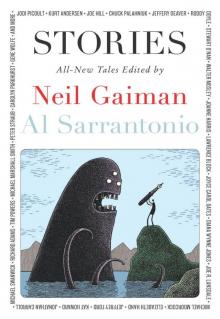 Stories: All-New Tales ngss-1
Stories: All-New Tales ngss-1 Don't Panic
Don't Panic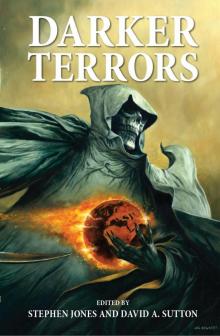 Darker Terrors
Darker Terrors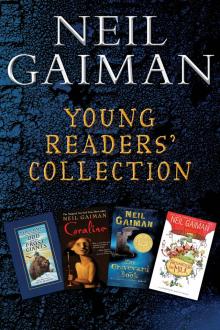 Neil Gaiman Young Readers' Collection
Neil Gaiman Young Readers' Collection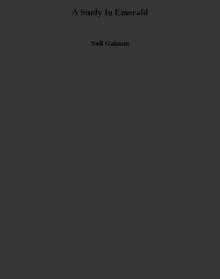 A Study In Emerald
A Study In Emerald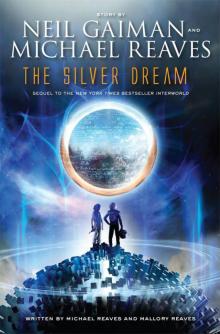 The Silver Dream: An InterWorld Novel
The Silver Dream: An InterWorld Novel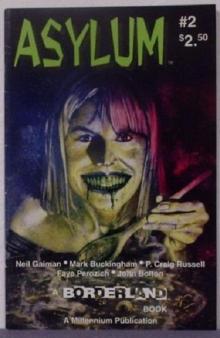 Feeders and Eaters
Feeders and Eaters Psychos
Psychos The View from the Cheap Seats
The View from the Cheap Seats Trigger Warning
Trigger Warning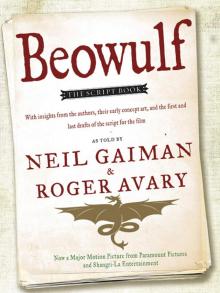 Beowulf
Beowulf Nessun Dove
Nessun Dove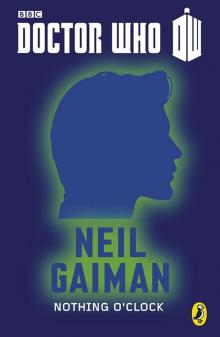 Doctor Who: Nothing O'Clock: Eleventh Doctor: 50th Anniversary
Doctor Who: Nothing O'Clock: Eleventh Doctor: 50th Anniversary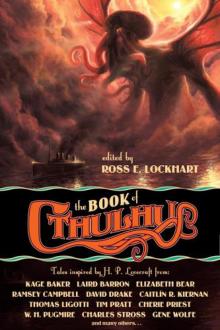 The Book of Cthulhu
The Book of Cthulhu